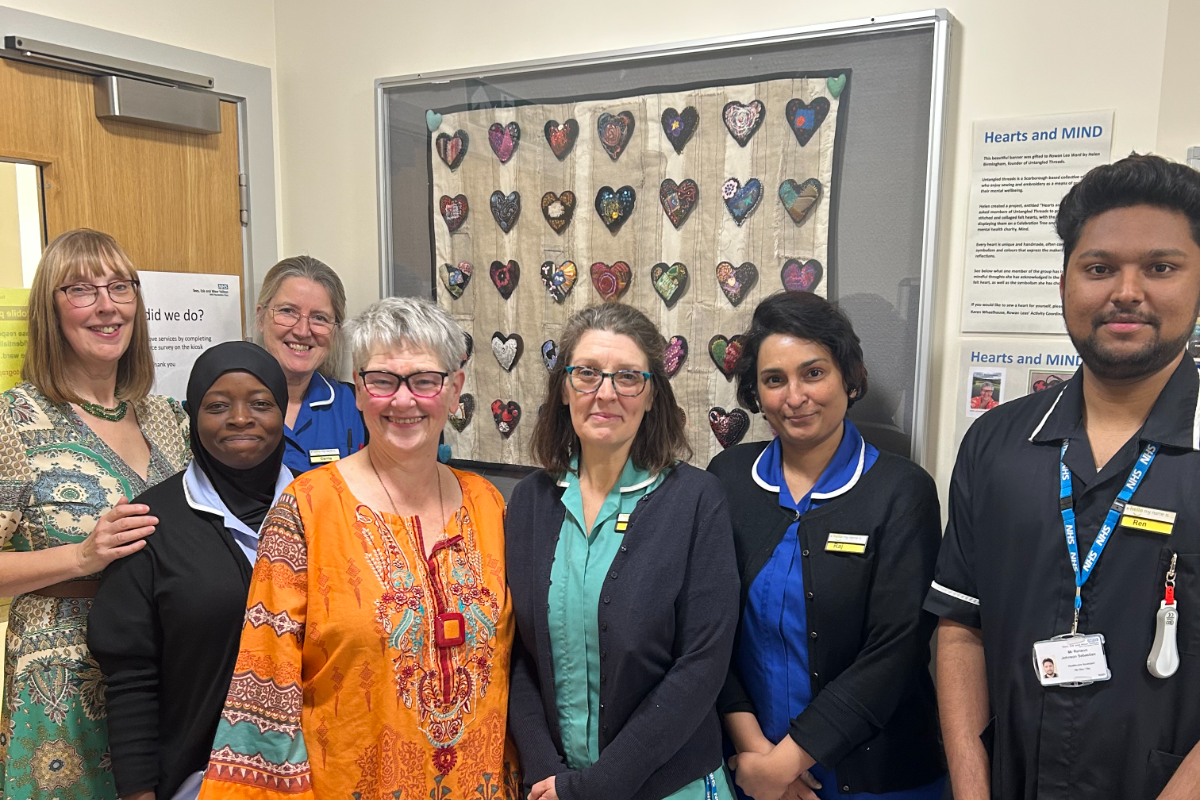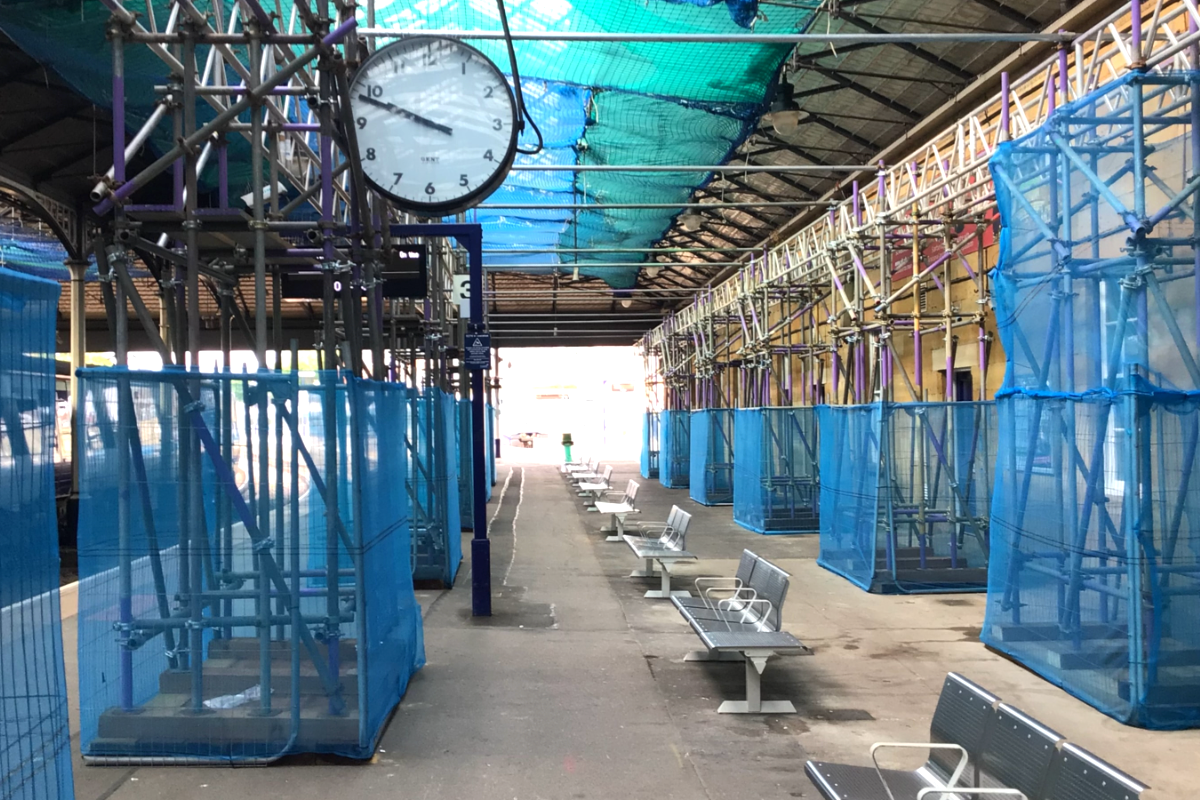
Simon Morritt, Chief Executive of the York and Scarborough NHS Trust, says progress has been made in securing funding for a new laboratory at Scarborough Hospital.
Simon Morritt stated that the Trust has been working closely with NHS England to acquire capital for the project. While he acknowledges that the process is slow, he highlights recent developments that give him confidence.
Within the last few weeks the Trust has received capital from NHS England to address several issues, including the presence of reinforced autoclaved aerated concrete (RAAC) in a link corridor area and the CEO says that importantly, this funding also allows the Trust to develop a plan for a new laboratory.
Mr Morritt says he believes this allocation of resources is a positive sign and suggests that NHS England is receptive to the idea of funding a new laboratory. He is hopeful that capital for the laboratory will be secured soon.
Some staff at the Scarborough site were relocated last year after RACC was found in the roof of the laboratory building.
Biomedical scientists at hospitals in York and Scarborough have taken strike action this autumn in protest over "unsustainable workloads" that they say are putting patient safety at risk.
Microbiologists at York Hospital and blood scientists at Scarborough & Bridlington Hospital, both part of the York and Scarborough Teaching Hospitals Foundation Trust, say they have been forced to continually deal with workloads far beyond safe levels.
The Unite Union says the closure of the biomedical facility at Scarborough has fed into the problems adding:
"Two years ago, a biomedical laboratory was closed at Scarborough Hospital which has led to increased pressure on other units within the trust. Despite continual pleas from staff for additional recruitment, training and capacity building, the trust has ignored the issue. Staff are now so overworked that they are concerned that patient safety is at risk."
Local Councillor, Rich Maw, says he's received confirmation that the Haematology services at Scarborough Hospital are being temporarily centralised at York Hospital, in a post on social media Councillor Maw added:
"Whenever the word, temporarily is used with regards to the loss of a clinical service, be wary. They seldom, if EVER come back.
Once again, York is prioritised over the East Coast who will retain only a once a week haematology service."
In a report The York and Scarborough NHS Trust says it is making temporary changes to its Haematology service, centralising the majority of consultant care to York Hospital. It says the changes are being made "due to safety concerns stemming from current staffing levels".
The Trust emphasises that this is a temporary measure and will be reviewed once proposals for a future service model are developed. The Trust is actively recruiting to fill the vacancies.
Under the new arrangement, consultant care at the Scarborough site will be reduced from approximately three days per week to one day per week. The team will continue to provide a consultant clinic in Scarborough, but this will be limited to face-to-face support for patients who are unable to travel to York or require care in Scarborough for other clinical reasons. All first appointments for fast track two-week waits or urgent patients will be conducted at York, face-to-face where possible.
Nurse-led clinics, bone marrow clinics, blood and bone marrow transfusions, phlebotomy (blood taking services) and chemotherapy will continue on both sites.
Reasons for Centralisation
By centralising consultant care at York Hospital, the Trust aims to:
- Increase flexibility in cross-cover between consultants on the York site.
- Sustain an increase in on-call frequency from 1:1 to 1:5. This will allow for prioritisation of acute work, but will also mean a reduction in elective activity.
- Reduce consultant travel time to Scarborough. The new plan cuts consultant travel time from an average of 5.5 hours per week to 2.5 hours, freeing up 3 hours for clinical work.
The Trust says it believes these changes will ensure safe staffing levels at the York site while also allowing more time for clinical work.




 Injured Yorkshire Coast Seal Back in the Water
Injured Yorkshire Coast Seal Back in the Water
 Flamingo Land Welcomes Baby Giraffe
Flamingo Land Welcomes Baby Giraffe
 UK Mayors Being Urged to Buy Scarborough Buses
UK Mayors Being Urged to Buy Scarborough Buses
 Free Music Events in Scarborough to Raise Funds for Andy's Man Club
Free Music Events in Scarborough to Raise Funds for Andy's Man Club
 Scarborough's Cross Lane Hospital Receives Heartfelt Gift
Scarborough's Cross Lane Hospital Receives Heartfelt Gift
 Saint Catherine’s Becomes First UK Hospice to Launch Masonic Aware Initiative
Saint Catherine’s Becomes First UK Hospice to Launch Masonic Aware Initiative
 Candidates Confirmed for First Scarborough Town Council Elections
Candidates Confirmed for First Scarborough Town Council Elections
 Scarborough Station Set for Multi-Million-Pound Roof Renovation
Scarborough Station Set for Multi-Million-Pound Roof Renovation
 Renewed Appeal Following "Shocking" Arson in Whitby
Renewed Appeal Following "Shocking" Arson in Whitby
 Six Candidates Standing to Become First Elected Mayor of Hull and East Yorkshire
Six Candidates Standing to Become First Elected Mayor of Hull and East Yorkshire
 Construction to Start on Whitby Maritime Hub
Construction to Start on Whitby Maritime Hub








Comments
Add a comment